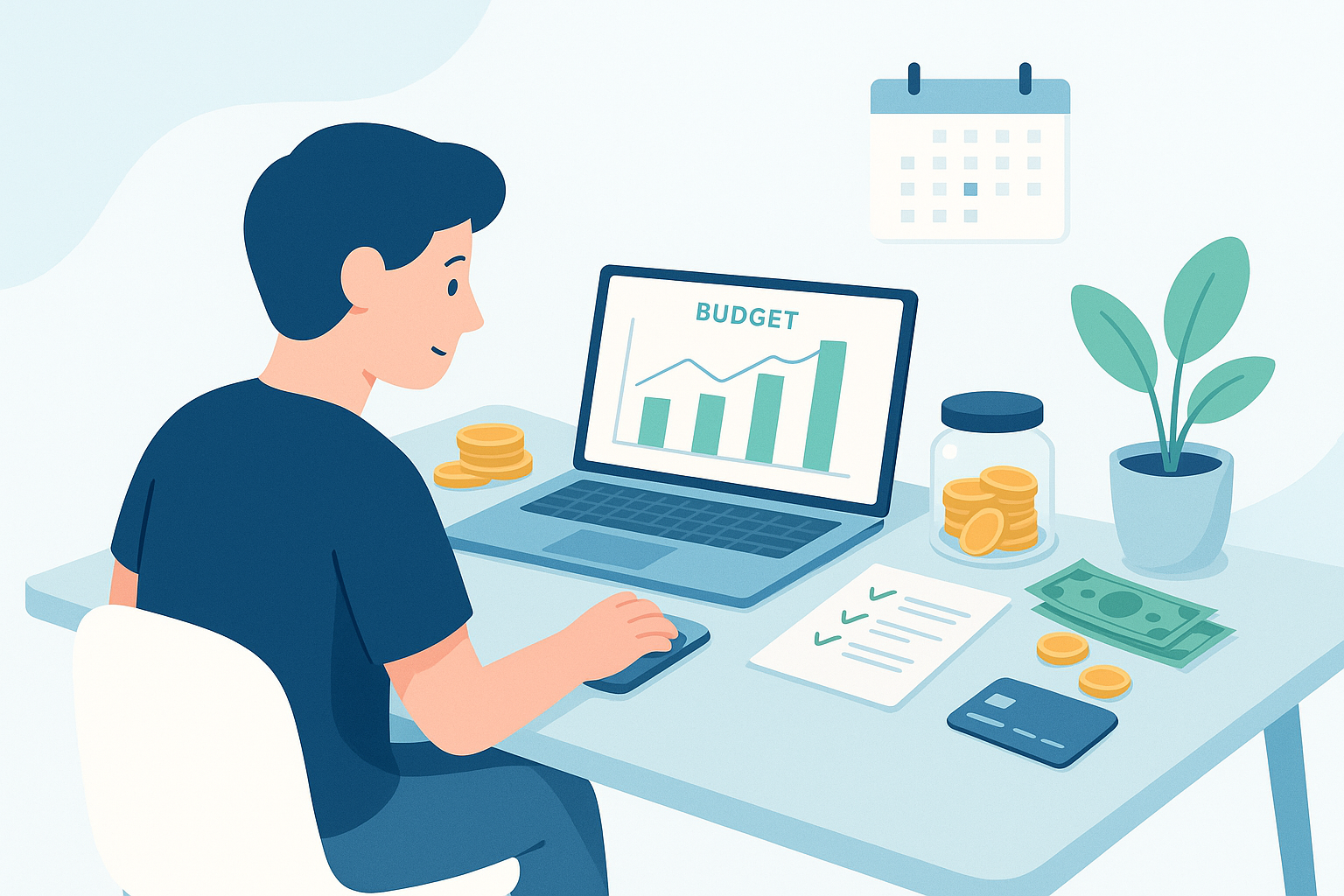Introduction:
Why Personal Finance Matters
Personal finance isn’t just about counting coins or saving what’s left at the end of the month — it’s about taking control of your financial future. Whether you’re a student, a young professional, or someone trying to recover from financial mistakes, understanding how to manage your money is a skill that will serve you for life.
In this post, we’ll explore practical and actionable personal finance tips that will help you take control of your income, spending, savings, and future.
1. What Is Personal Finance?
Personal finance refers to how you manage your revenue, expenses, savings, investments, and debts. It involves making smart decisions with your money to meet your short-term and long-term financial goals.
Key Areas of Personal Finance Include:
Budgeting
Saving
Managing debt
Investing
Retirement planning
Insurance and protection
2. Create a Realistic Monthly Budget
A budget is the foundation of any successful personal finance strategy. It helps you control your spending and plan for your goals.
Steps to Create a Monthly Budget:
List all income sources (job, freelancing, side hustles)
Track all your monthly expenses (rent, groceries, bills, transport)
Divide your charges into categories: needs, wants, and savings
Use the 50/30/20 rule:
50% for needs
30% for wants
20% for savings or debt repayment
Tip: Use free apps like Mint, YNAB (You Need a Budget), or even a Google Sheet to track your income and expenses easily.
3. Build an Emergency Fund
An emergency svaings is your safety net for unexpected situations like medical disaster, job loss, or car repairs.
Why It Matters:
Prevents you from falling into debt
Gives you peace of mind
Keeps your financial goals on track even during tough times
How Much Should You Save?
preferably, 3 to 6 months of necessity living charges
Keep it in a high-generate savings account for quick acquire and better returns
4. Avoid Bad Debt and Manage Existing Debt Smartly
Not all debt is bad (like a home loan or student loan), but high-interest debt (like credit cards) can ruin your finances if not managed properly.
How to Avoid or Control Debt:
Spend less than you earn
Pay off credit card stability in full each month
Don’t fall for “buy now, pay later” schemes unless absolutely necessary
Use Debt Snowball (start with the smallest debts) or Debt Avalanche (start with highest interest rate) method to pay off debt efficiently
5. Start Saving — No Matter How Small the Amount
Saving is not about how much you make money, it’s about your strictness. Even small savings add up over time if you stay consistent.
Saving Tips:
Automate monthly transfers to a separate savings account
Set savings goals (emergency fund, vacation, new phone, etc.)
Avoid lifestyle inflation — don’t increase spending just because you got a raise
6. Learn to Invest for the Long-Term
Saving is good, but your money grows faster when you invest. Investing money helps you beat escalation and build long-term wealth.
Beginner Investment Options:
Mutual Funds
Index Funds (e.g., S&P 500)
ETFs (Exchange Traded Funds)
Real Estate
Retirement Accounts (e.g., 401(k), IRA)
Tip: Don’t invest blindly. Learn basic investing principles or talk to a certified financial advisor.
7. Track Your Net Worth Regularly
Your net worth is a simple formula:
Net Worth = Total Assets – Total Liabilities
It helps you acknowledge if you’re moving in the right direction economically.
Assets include:
Cash
Investments
Property
Liabilities include:
Loans
Credit card debt
Check your net worth every 3–6 months to measure progress and make improvements.
8. Set SMART Financial Goals
Goals help you stay focused and make better money conclusion.
SMART Goals are:
Specific (e.g., Save Rs. 200,000)
Measurable (Track your progress)
Attainable (Set realistic goals)
Relevant (Aligned with your life priorities)
Time-bound (Have a deadline)
Examples:
“Save Rs. 100,000 in 12 months for an emergency fund”
“Pay off credit card debt in 6 months”
“Invest Rs. 5,000/month for the next 5 years”
9. Increase Your Financial Knowledge
The more you learn, the better decisions you’ll make.
Recommended Finance Resources:
Books:
Rich Dad Poor Dad – Robert Kiyosaki
The Psychology of Money – Morgan Housel
Your Money or Your Life – Vicki Robin
YouTube Channels:
Graham Stephan
Ali Abdaal (for productivity + finance)
Nate O’Brien
Stay updated by reading finance blogs or listening to personal finance podcasts on the go.
10. Avoid Common Money Mistakes
Avoiding mistakes is just as important as making the right decisions.
Common Financial Mistakes to Avoid:
🚫 Living paycheck to paycheck
🚫 Not saving for emergencies or retirement
🚫 Relying on only one income source
🚫 Ignoring your credit score
🚫 Skipping insurance for health, life, or car
Fix: Start small, be consistent, and review your finances regularly.
Conclusion: Take Charge of Your Financial Future
Personal finance is not about being rich — it’s about being in control. With a few simple habits like budgeting, saving, and learning to invest, you can create financial security and reduce money-related stress. The shortly you start organize your money wisely, the more financial freedom you’ll have in the future.





